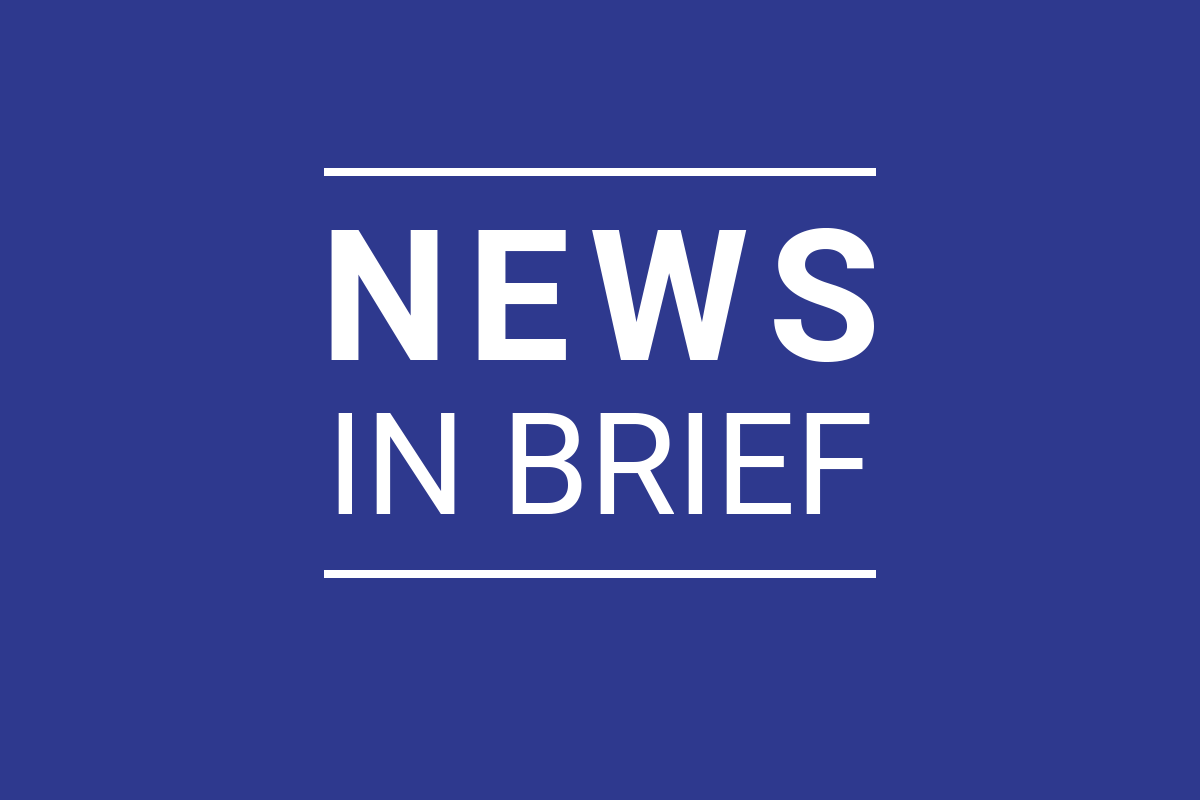
News in Brief, October 2023
October 19, 2023
Genetic Testing Challenges and Solutions: A Community and an Academic Perspective
October 19, 2023Trial Spotlight: A Closer Look at ECOG-ACRIN’s Leukemia and Myelodysplastic Syndrome Studies

Researchers at the ECOG-ACRIN Cancer Research Group (ECOG-ACRIN) are leading several clinical trials investigating potential new leukemia treatment approaches for the newly diagnosed, those with disease that persists after treatment, or those whose leukemia has relapsed. And, through a collaboration between the National Heart, Lung, and Blood Institute (NHLBI), the National Community Oncology Research Program (NCORP), and ECOG-ACRIN, researchers are building a biorepository to help investigators design high-impact studies to benefit patients with myelodysplastic syndrome (MDS).
Nearly 60,000 people are estimated to be diagnosed with leukemia in the United States annually, representing 3% of all new US cancer cases, and the disease accounts for nearly 4% of cancer deaths (SEER database). Notably, The Leukemia & Lymphoma Society reports that the 5-year survival rate for leukemia has more than doubled from 34% (1975-1977) to 69% (2012-2018). The research we highlight below aims to improve even more on this progress.
EA9152 – Venetoclax and Vincristine in Treating Patients with Relapsed or Refractory T-cell or B-cell Acute Lymphoblastic Leukemia
The study chair for this trial is Neil D. Palmisiano, MD, MS (Rutgers Cancer Institute of New Jersey) and the study co-chair is David F. Claxton, MD (Penn State Cancer Institute).
Relapsed B-cell or T-cell acute lymphoblastic leukemia (ALL) remains a therapeutic challenge, especially in older patients or those who may not be eligible for a stem cell transplant. Study EA9152 is investigating the safety and efficacy of venetoclax, a BCL-2 inhibitor, in combination with vincristine sulfate in the relapsed or refractory ALL population.
After conclusion of the phase 1 portion of the trial, which determined the maximum tolerated dose of venetoclax, the phase 2 portion is currently active. All patients who enroll receive venetoclax and vincristine sulfate for up to 6 weeks. Patients undergo a bone marrow biopsy on day 28, and those whose disease is at least stable receive a second 28-day cycle of the combination therapy.
The phase 2 part of this study aims to enroll 56 patients.
Learn more about EA9152 and view the eligibility criteria.
EA9171 – Testing Pembrolizumab with Existing Cancer Therapy in Patients with Evidence of Residual Chronic Myelogenous Leukemia
The study chair for this trial is Amer M. Zeidan, MBBS (Yale University Cancer Center).
Although treatment with tyrosine kinase inhibitors (TKIs) can prolong overall and disease-free survival in many patients with chronic myelogenous leukemia (CML), not everyone benefits. In addition, TKIs can have substantial negative effects on patients’ quality of life and financial resources.
Against that backdrop, the non-randomized phase 2 EA9171 (BLAST MRD CML 1) trial is examining the addition of pembrolizumab immunotherapy to a standard-of-care TKI (dasatinib, imatinib mesylate, nilotinib, or bosutinib) for treating patients with CML and persistent detection of minimal residual disease (MRD). The primary endpoint of BLAST MRD CML 1 is to assess the proportion of CML patients on stable-dose TKI who convert to a state of undetectable MRD during or within two years of initiating pembrolizumab therapy.
The study aims to enroll 40 patients.
Learn more about the BLAST MRD CML 1 trial and view the eligibility criteria.
EA9181 – Studying the Use of Tyrosine Kinase Inhibitors with Blinatumomab or Chemotherapy for Newly Diagnosed BCR-ABL-Positive Acute Lymphoblastic Leukemia in Adults
The study chair for this trial is Yishai Ofran, MD and the study co-chair is Jacob M. Rowe, MD (both of the Shaare Zedek Medical Center).
A well-established poor prognostic factor for adult patients with acute lymphoblastic leukemia (ALL) is the t(9;22) translocation (Philadelphia chromosome), which yields the BCR-ABL fusion gene. This randomized phase 3 trial is exploring whether treatment with a tyrosine kinase inhibitor (TKI) plus blinatumomab immunotherapy may be superior to the usual treatment of chemotherapy and a TKI in this patient population. Treatment in both arms will be preceded by induction with steroids.
The primary objective is to compare overall survival between the two arms. If the results show a survival benefit with the chemo-free regimen, this will be the first protocol for ALL to suggest a chemo-free regimen should be adopted. However, because EA9181 is also evaluating several important secondary objectives, this trial has the potential to be practice-changing regardless of the primary outcome.
The study aims to enroll 348 patients.
Learn more about EA9181 and view the eligibility criteria.
EA9213 – Daratumumab-Hyaluronidase for Chemotherapy-Relapsed/Refractory Minimal Residual Disease (MRD) in T Cell Acute Lymphoblastic Leukemia (T-ALL)
The study chair for this trial is Shira N. Dinner, MD (Northwestern University/Robert H. Lurie Comprehensive Cancer Center) and the study co-chair is Talha Badar, MBBS, MD (Mayo Clinic in Florida).
T-cell acute lymphoblastic leukemia (T-ALL) is an aggressive hematologic malignancy that accounts for approximately 25% of adult ALL cases. The historical treatment approach is chemotherapy and possibly a stem cell transplant; however, relapse during active therapy is common, at which point treatment options are limited.
EA9213, a non-randomized phase 2 trial, aims to rid patients of residual disease following initial treatment. It is testing the efficacy of daratumumab and hyaluronidase in treating T-ALL that persists after treatment or has come back in patients who have received treatment with chemotherapy. The combination is a monoclonal antibody currently FDA-approved for multiple myeloma and light chain amyloidosis.
The study aims to enroll 20 patients.
Learn more about EA9213 and view the eligibility criteria.
NHLBI-MDS/The National MDS Study – Tissue Collection and Natural History Study of Patients with Myelodysplastic Syndrome or Myeloproliferative Neoplasms
The study chair for this trial is Mikkael A. Sekeres, MD, MS (University of Miami/Sylvester Comprehensive Cancer Center) and the study co-chair is Amy E. DeZern, MD (Johns Hopkins University/ The Sidney Kimmel Comprehensive Cancer Center).
This research trial is collecting tissue samples and other information about treatment and disease history from patients with cytopenia undergoing a workup for suspected myelodysplastic syndrome (MDS) or myeloproliferative neoplasms. Researchers are using this information to learn more about MDS and blood disorders that may lead to MDS, how the diseases change over time, and to use this knowledge to prevent, detect, and treat MDS in the future.
Last year, the study team launched a web-based portal to provide interested researchers with a rich clinical dataset, digital H&E slides, and genetic sequencing data collected prospectively from study participants. Resources continue to be added to the database and biorepository as new patients join the study and the existing cohort is followed longitudinally. The study team invites investigators to query and request resources through an online Resource Request Portal.
The National MDS Study is the largest-ever prospective study of MDS in the United States, with a goal of enrolling up to 2,000 patients.
Learn more about The National MDS Study.
![ECOG-ACRIN logo[19516]275×75](https://blog-ecog-acrin.org/wp-content/uploads/2021/03/ECOG-ACRIN-logo19516275x75.png)
